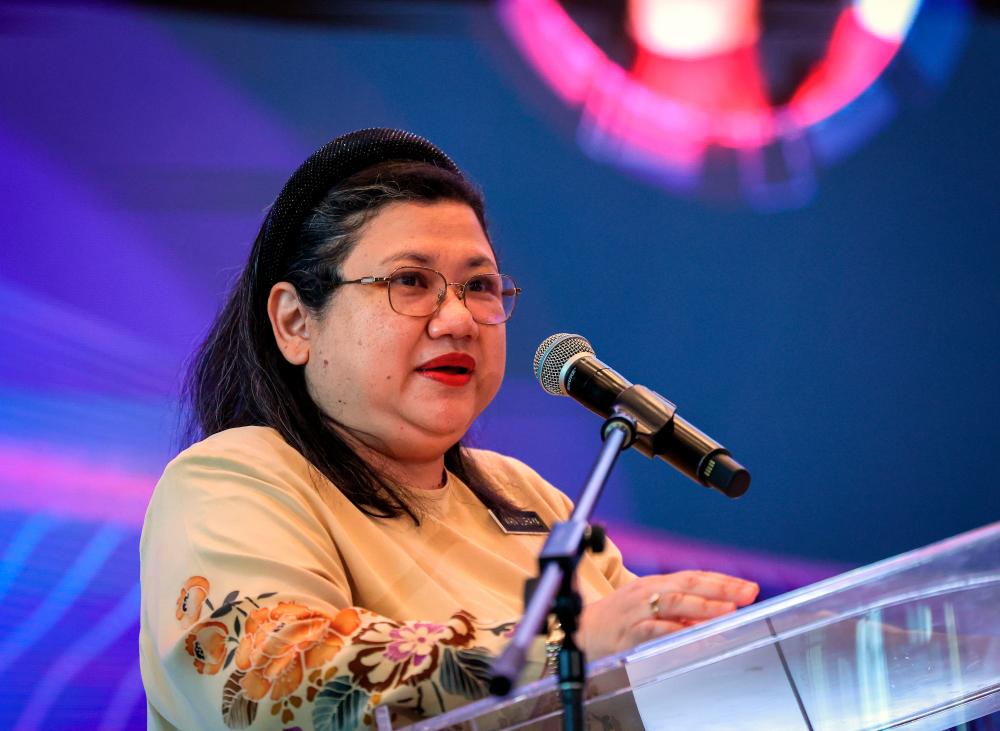KUALA LUMPUR: Internal auditors, particularly those in banking institutions, should embrace key transformations, such as adopting an agile, technology-driven and professional approach to remain relevant in the future, said Auditor-General Datuk Wan Suraya Wan Mohd Radzi.
She said that with agility and a proactive approach, internal auditors could effectively address emerging risks, such as those associated with new technologies and evolving regulatory requirements.
“Internal auditors must shift from solely relying on periodic audits to continuous auditing and monitoring.
“By embracing a dynamic and proactive approach, internal audit functions can stay ahead of the curve and effectively mitigate risks,“ she said in her speech while officiating the inaugural Bank Audit Conference 2024 (BAC 2024), organised by the Asian Institute of Chartered Bankers (AICB) and AICB’s Chief Internal Auditors Networking Group (CIANG).
On technology, Wan Suraya said artificial intelligence (AI), machine learning, and data analytics will revolutionise the way audits are conducted, and internal audit teams should leverage these tools to enhance efficiency, gain deeper insights, and perform more precise and targeted audits.
“Automation will streamline processes, enhance accuracy, and provide deeper insights into risks and opportunities. By harnessing the power of technology, internal auditors will be able to identify emerging risks in real-time and proactively mitigate them,“ she said.
Echoing Wan Suraya’s views, Asian Institute of Chartered Bankers (AICB) chairman Tan Sri Azman Hashim said that AI and data analytics could enable internal auditors to dive deeper into larger reams of data to understand what’s sustainably driving the business.
He further emphasised that as internal auditors adopt new technologies, the ethical implications of AI and the integrity of their data sources also demand equal attention.
He also highlighted that continuous learning is key for internal auditors to advance into the future and secure relevance in the profession.
Azman added that AICB remains committed and continues to focus its efforts on upholding the highest standards of professional conduct and competence for the Malaysian banking workforce through its membership, qualifications, and continuous professional development programmes.
Internal audit is the third line of defence
Emphasising the crucial role of the internal audit function in organisations, HSBC independent non-executive director Datin Seri Sunita Mei-Lin Rajakumar said that non-executive directors, who are often the majority of board members, according to the best practices of corporate governance, require an unvarnished, independent view of the business.
“Internal audit is the third line of defence that provides an independent view of a business’s internal controls and risks. As businesses become more complex, internal audits ensure that a company is well-maintained and on track,” she said during the press conference at BAC 2024.
Meanwhile, CIANG chairman Shamsul Bahrom said that BAC 2024 discussed critical issues impacting internal auditors and promoted greater knowledge sharing and best practices.
He said that one of the key takeaways from the discussion of the audit committee’s expectations is that internal auditors should maintain the highest level of independence, professionalism, objectivity, and thoroughness in executing their mandate, emphasising on the audit report.
“As an internal auditor myself, I wish to emphasise the importance of acknowledging that the internal audit functions as the third line of defence and must always remain relevant and effective to protect stakeholders’ interests. It cannot be overemphasised that the internal audit function needs to evolve with the operating landscape.
“The efforts by AICB and CIANG in preparing for the future will promote stronger compliance within our institutions, meet the highest international standards, and contribute to the stability of the financial system and the broader economy,” he said in his speech at the closing ceremony of BAC 2024.
Additionally, Shamsul said that they (CIANG) had heard fruitful deliberations, moderations, and invaluable input from its esteemed speakers and panellists discussing the expectations of the internal audit function.
“The chief executive officer (CEO)’s viewpoint underlines the critical role of internal audits as stewards of governance and risk management in promoting organisational resilience, creativity, and strategy alignment.
“Their perspective acts as a guiding beacon, emphasising the necessity for agility, flexibility and foresight in internal auditors and, most importantly, for them to be knowledgeable and well-versed in understanding what they are auditing,” he added.
Themed “Future of Internal Audit - Embracing Change, Staying Relevant”, BAC 2024 was organised by AICB and CIANG to provide a platform for internal audit professionals and experts to discuss the megatrends shaping the new audit and risk management landscape, regulatory developments, and how to elevate further the standards of internal audit practices in financial institutions in Malaysia.
The two-day conference ending today featured over 30 bankers, regulators, and internal audit experts shedding light on the notable global trends in the industry, including digital disruption and cybersecurity, the increasing importance of environmental, social, and governance (ESG) issues in business coordination, and sustainability reporting.
The conference drew over 500 delegates from local and international financial institutions and featured a pre-conference workshop that focused on integrating data security and cybersecurity into the internal audit framework. - Bernama









